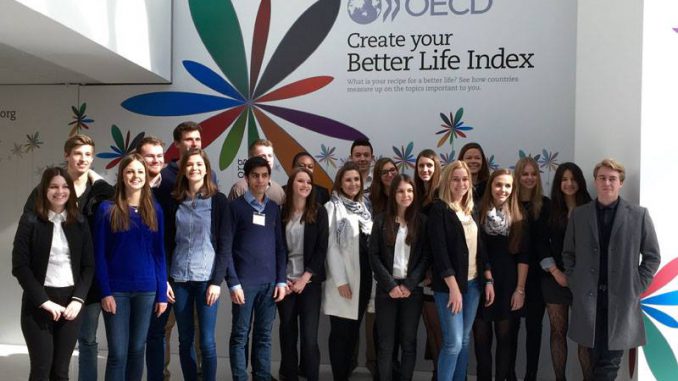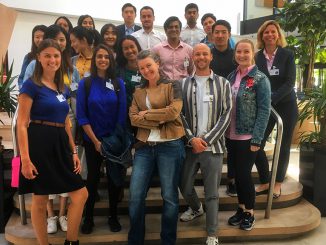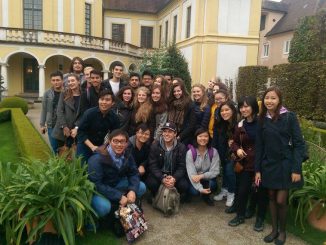
How should multinational companies be taxed? Which countries are in the greatest need of development assistance? What are the most effective ways to fight corruption? Those are just some of many challenges the Organization for Economic Co-operation and Development (OECD) faces. Comprising 34 member states, the organization is one of the most important international associations there is.
20 Bachelor International Business students from Munich Business School were eager to get to know the OECD and followed the organization’s invitation to visit its headquarters in Paris, France. The students and their economics lecturers, Dr. Alina Schoenberg and Dr. Florian W. Bartolomae, were warmly welcomed by the German representation at OECD. One mandatory security check later, Counselor Dr. Martin Jungius introduced the organization and its role to the students.
Amongst other things, the MBS students learned that the OECD is a permanent forum for mutual exchange and cooperation between its member states. Furthermore, the organization is committed to the principles of democracy and as market economy, attaching great importance to the economical development of its members. The OECD also exercises its mandate to identify deficits and develop appropriate solutions.
How do “good” companies do business?
Afterwards, Jennifer Schappert-Champeaux, Policy Analyst at OECD, presented her field of activities. This includes corporate social responsibility within the respective value chain and the OECD “Guidelines for Multinational Enterprises”.
Those guidelines can be defined as a voluntary agreement, a so called “soft law”, the member states may and should follow. They include aspects such as ethical and responsible entrepreneurial behavior, transparency as well as environmental and consumer-related issues in a global context.
Last but not least, the students learned about the so called OECD National Contact Points, playing an important role as the organization’s “extended arms” within its member states.
TTIP and low wages
Following the two informative presentations, the students were given the opportunity to deepen their knowledge of particular topics and discuss them in an interactive Q&A session.
The business students were especially interested in economical issues such as the planned free trade agreement TTIP and low-wage countries.
“It was very impressive to get a look behind the scenes of this influential international organization: What the OECD deals with, how its employees work and what topics they focus on. It definitely was a special experience to visit the OECD headquarters here in Paris,” summarizes Felix Ziegler, Bachelor student at MBS.



